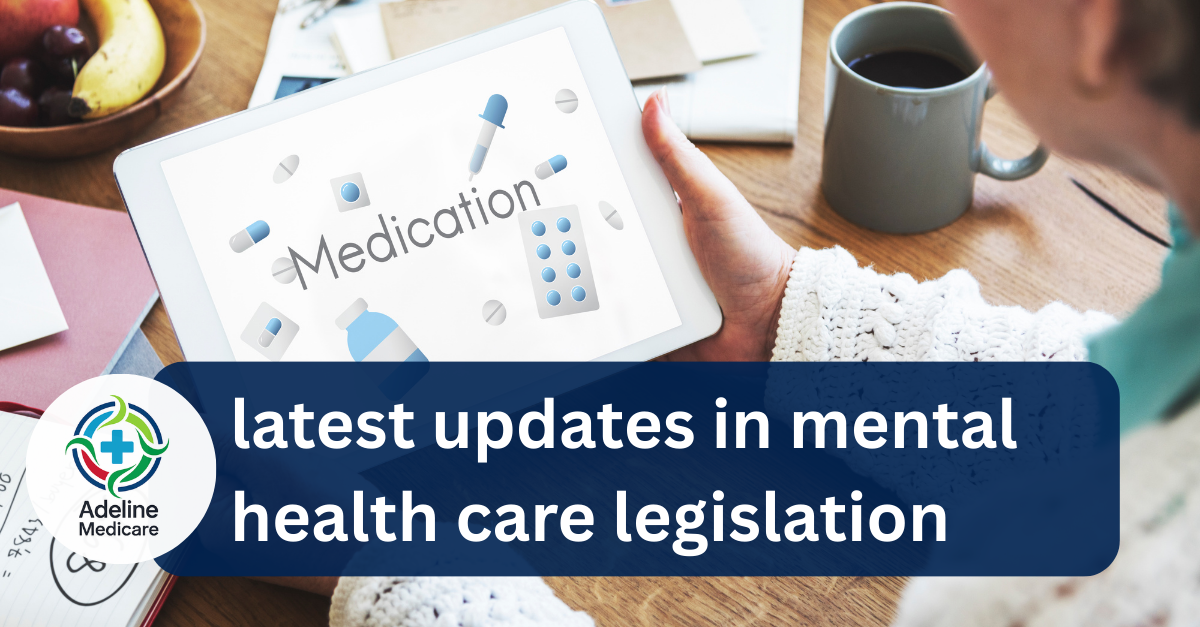
The landscape of mental health care legislation in 2025 is shifting rapidly. Laws are being introduced, enforced, or modified to address parity, technology use, cultural equity, involuntary treatment, and preventive strategies in schools. For healthcare professionals, insurers, educators, and patients, keeping track of these changes is vital to ensure compliance and access to care.
This article highlights the latest updates in mental health care legislation and their implications for the industry.
Stronger Enforcement of Mental Health Parity in Georgia
First Major Fine for Noncompliance
Georgia has become the first state to issue a major penalty for mental health parity violations. In August 2025, insurers were fined $20,000,000 for failing to provide equal coverage for mental health and physical health services.
Why This Matters for Patients and Providers
-
Patients are more likely to receive covered mental health services without arbitrary restrictions.
-
Providers can expect more consistent reimbursement when delivering psychiatric and behavioral health care.
-
Insurers are under pressure to improve compliance and transparency.
Georgia’s action demonstrates that even if federal enforcement slows, states are willing to step up and hold payers accountable.
Federal Rollback on Parity Oversight
Pause in Enforcement
At the federal level, enforcement of mental health parity rules has been paused. Additionally, funding for the agency responsible for oversight has been reduced.
Impact of Federal Inaction
-
Creates inconsistent enforcement across states.
-
Leaves patients in weaker regulatory environments vulnerable to coverage gaps.
-
Places the responsibility on states to protect parity in mental health care.
This rollback highlights the growing divide between proactive state action and federal retreat in mental health policy.
Addressing Disparities: Mental Health for Latinos Act
Focus on Equity in Care
Senator Alex Padilla introduced the Mental Health for Latinos Act of 2025, aiming to address gaps in access for Latino communities.
Key Goals of the Act
-
Provide culturally and linguistically appropriate services.
-
Support community-based outreach programs.
-
Improve access to mental health care among underserved populations.
If passed, the act will mark a major step toward reducing disparities and ensuring equitable treatment for all communities.
Regulation of AI in Mental Health Therapy
Illinois Bans AI-Only Therapy
Illinois has enacted legislation banning the use of artificial intelligence as a substitute for licensed professionals in therapy. Under this law:
-
AI cannot diagnose or treat patients.
-
Companies cannot market AI as a replacement for professional care.
-
Violations may result in fines of up to $10,000.
Why This Legislation Was Necessary
Concerns have grown about patient safety, data privacy, and reports of negative outcomes linked to unregulated AI tools. Other states, including Nevada and Utah, have adopted similar measures.
Implications for Healthcare Providers
AI can still play a supportive role in monitoring, documentation, and administrative tasks. However, clinical decision-making remains firmly in the hands of licensed professionals.
Texas Expands Criteria for Involuntary Treatment
New Law Targeting Anosognosia
Texas has broadened its criteria for involuntary psychiatric evaluation. Law enforcement can now detain individuals with anosognosia, a condition in which patients are unaware of their illness, even if they do not pose immediate danger.
Process and Requirements
-
Individuals must be evaluated within 12 hours of detention.
-
Courts may order treatment based on medical assessments.
Supporters vs. Critics
-
Supporters argue the law allows earlier intervention and helps vulnerable populations, including the homeless.
-
Critics warn that it threatens civil liberties and risks misuse by authorities.
This law brings attention to the complex balance between protecting patient rights and ensuring access to care.
Mandatory School Mental Health Screenings in Illinois
Early Detection Strategy
Illinois has passed a law requiring annual mental health screenings for students in grades 3 through 12. Implementation begins in the 2027–2028 school year.
Key Details of the Law
-
The state must finalize implementation guidelines by September 2026.
-
Parents are allowed to opt out of the program.
-
Schools must create referral pathways for students flagged during screenings.
Benefits and Concerns
-
Benefits: Early detection of mental health issues, stronger support systems for students, and potential academic improvements.
-
Concerns: Data privacy, parental engagement, and capacity of referral networks.
This initiative reflects a shift toward prevention in mental health policy, emphasizing early intervention in educational settings.
Industry-Wide Implications of 2025 Legislation
The latest updates in mental health care legislation reveal several broader trends:
-
States are leading the way: Georgia and Illinois show that state governments are driving enforcement and innovation.
-
Equity is central to policy: The Latino-focused bill demonstrates a push for culturally competent care.
-
Technology oversight is increasing: AI regulation highlights the need for patient safety in digital health tools.
-
Civil liberties remain a concern: Texas’s expansion of involuntary treatment has ignited nationwide debate.
-
Prevention is gaining ground: School-based screening laws indicate a long-term investment in early detection.
Conclusion
The latest updates in mental health care legislation reflect a complex mix of progress and challenges. State-level initiatives are pushing forward with enforcement, equity, and prevention, while federal oversight has slowed. Legislation around AI and involuntary treatment further demonstrates the ongoing struggle to balance innovation, patient safety, and civil liberties.
For healthcare professionals, staying informed about these laws is critical. Adapting to new compliance requirements, preparing for increased referrals, and maintaining culturally competent care will be key priorities in the coming years.